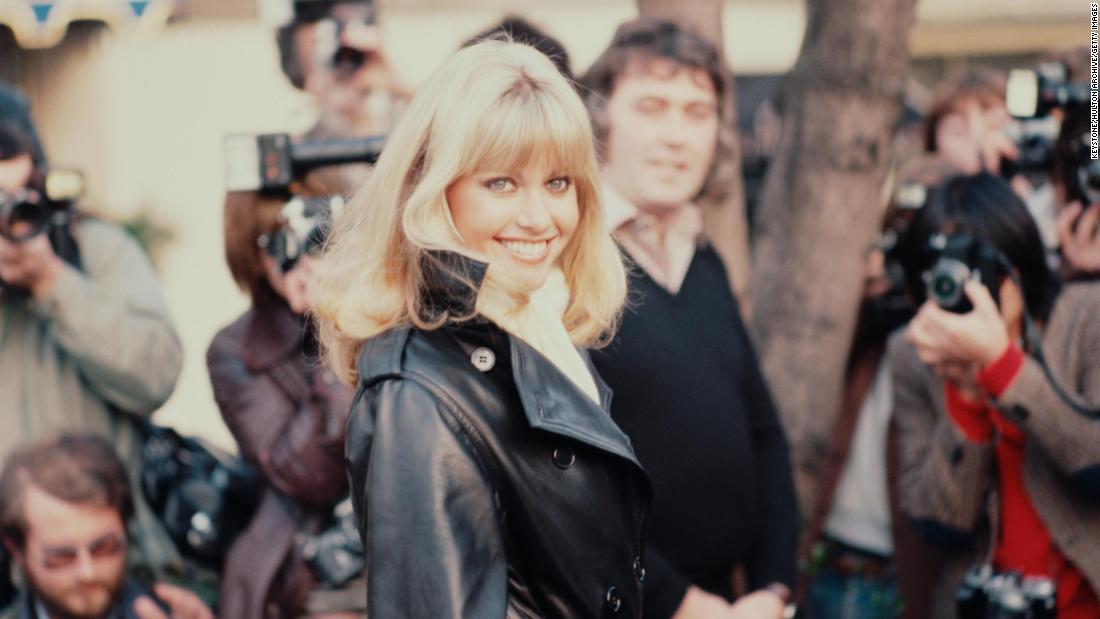Thankfully for all involved, she was so charming in her interview that I immediately forgave her for aging in the decades since her starring role as Sandy Olsson. Her smile was still dazzling, her chemistry with co-star John Travolta still enviably electric, and judging by her carefree demeanor at least, her real life seemed every bit as magical as that of her most famous character.
As I discovered when my fandom evolved beyond my initial obsession with "Grease," this was not the case. The highs in Newton-John's life were more marvelous than most, but they were matched by dire lows. After her initial breast cancer diagnosis in 1992, she lived alongside the disease for the rest of her life, becoming as beloved for her
related advocacy as she was for her most memorable role. She became a national treasure in Australia, where her work was
pivotal in supporting research and treatment at the cancer center in Melbourne that bears her name.
Newton-John made such an impact as an artist and advocate that much of the rest of her extraordinary and sometimes strange story is comparatively sidelined. Even a selective overview reveals a woman gifted with a chameleon-like ability to reinvent herself -- and underscores the futility of any attempt to pigeonhole a person's experience based on their most visible triumphs or misfortunes.
For starters, the release of "Grease" was far from the only memorable occurrence in Newton-John's world in 1978. The year her fame went stratospheric -- a moment anyone would be expected to capitalize on to the absolute max -- she also
canceled a concert tour of Japan in protest of the killing of dolphins by the country's fisherman. Her tenderness for the creatures even found its way into her music -- her 1981 song "The Promise (the Dolphin Song)" was inspired by dolphins she met in Hawaii. "It was strange," she told
People in 1982. "The morning after I was in the pools, I woke up and the words and melody were in my head. I think it was a gift from them."
In many respects, her musical career was both more eclectic and more illustrious than your standard "Grease" fan might appreciate. We're all familiar with her 1981 smash hit single "Physical" (P.S., the
video's "let's whip these fatties into shape as a
smokescreen for our sexy song" theme really hasn't aged well upon a rewatch) -- but did you know she won a Grammy for
best female country vocal performance in 1974 for "Let Me Be There"? Her early success on the country scene was met with
serious pushback from traditionalists eager to protect the genre from any supposed contamination by pop artists. Her voice nevertheless became so respected that
she beat Dolly Parton to the title of
female vocalist of the year at the 1974 Country Music Association Awards, an award no other non-American has yet won. As if determined to clear horizons in every conceivable direction, she also
competed in the 1974 Eurovision song contest with her song "Love Live Love" -- and finished fourth, behind ABBA with "Waterloo."
The romantic themes of Newton-John's greatest musical hits -- Grease's "Hopelessly Devoted To You" is probably still the song most associated with her -- belied the sometimes merciless reality of her actual love life. Her fiancé Bruce Welch
attempted suicide after their breakup in 1972, which occurred amid rumors she was dating someone else. She
divorced her first husband, the actor Matt Lattanzi, in 1995 after 11 years of marriage, and her next significant partner, on-off boyfriend Patrick McDermott, a cameraman,
mysteriously disappeared in 2005. He was last seen boarding a fishing boat off the coast of California, and his sudden vanishing was a mystery never solved. Newton-John was
understandably "frantic with worry" at the time, and investigations yielded no trace of McDermott and no evidence of foul play.
She married John Easterling, the founder of the Amazon Herb Company, in 2008, and the couple remained together for the rest of her life. Her ability to pick herself back up seemed to apply to any disaster or embarrassment, from her
abortive attempt at a sportswear company in the 1980s to her 1980 musical "Xanadu," a flop Variety
declared "stupendously bad." She approached both wins and falls with a healthy dose of humor, the most delightful example probably being her more recent
cameos on "Glee," one of which featured an absurd (and remarkably, less offensive)
reimagining of the "Physical" video.
It's unsurprising, given her open-armed approach to life in general, that Newton-John wholeheartedly rejected the tired "battle" narrative so often used to describe cancer. In
a 2020 interview, three years after she was told that her disease had returned, metastasized and spread to her bones, she still insisted that she felt "lucky." "I choose not to see it as a fight either because I don't like war. I don't like fighting wherever it is -- whether it's outside or an actual war inside my body," she explained.
Ultimately, she approached her illness as she did everything else: as a process of evolution. Shoehorning her disease -- or her career, or her romances, or anything else -- into a neat win-or--lose narrative would only flatten the nuances that distinguish real life from a teenage movie musical. For all the lightness Newton-John exuded, the path she trod was far more complicated than many of the tributes to her might suggest. In remembering her, we should remember the left-field and uncomfortable things, as well as the noble, inspiring ones. Often, they reveal the true measure of a person.

No comments:
Post a Comment